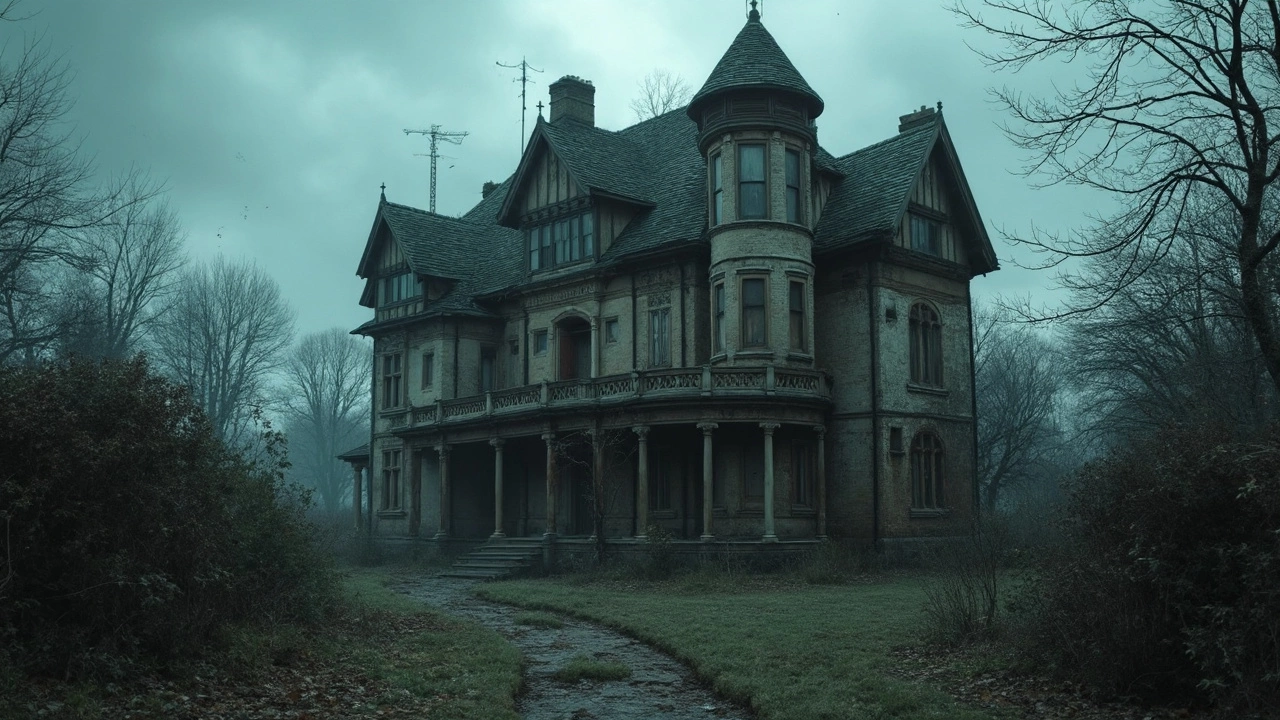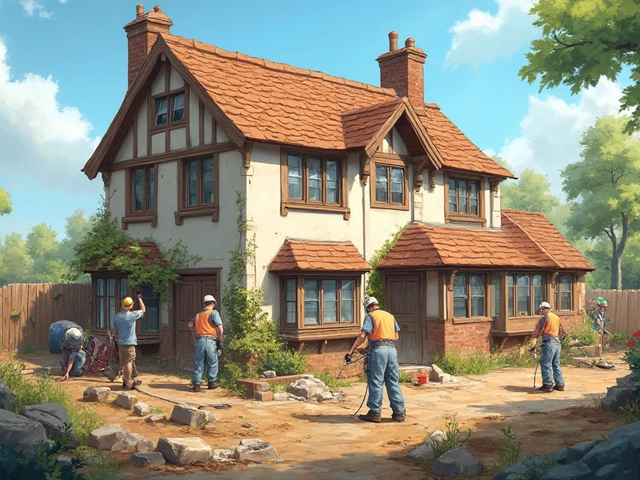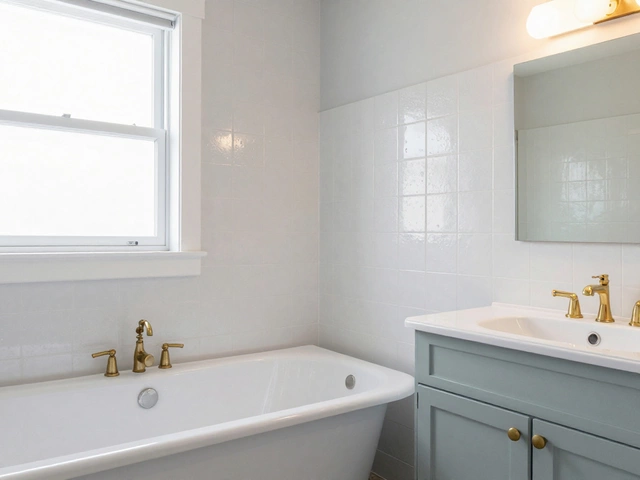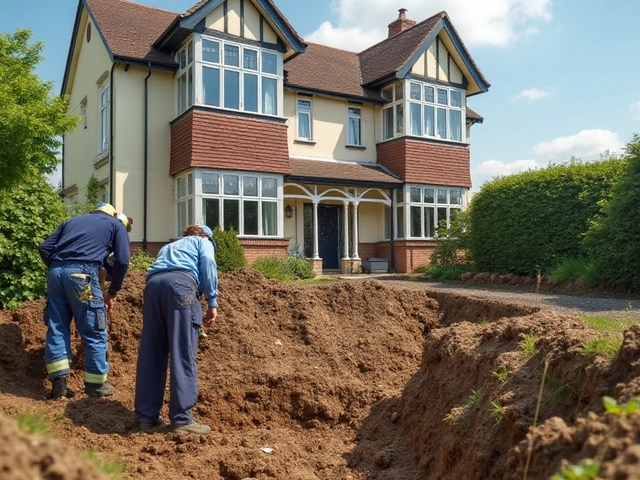Ever wonder if those tiny cracks in your walls mean your house is on the brink of collapse? It's a scary thought, right? Foundation issues are like termites gnawing at the stability of your home—slowly, silently, and eventually making a big impact. Now, not every crack or creak is cause for panic, but ignoring certain signs can lead to a nightmarish scenario.
Foundation troubles can become a ticking time bomb if left unchecked. We're talking walls that start leaning like they're auditioning for the Tower of Pisa, or doors that decide they'd rather stick tight than open and close smoothly. But, don’t lose sleep yet, because understanding what’s going on below can go a long way in keeping your home safe and sound.
Just think of a foundation like the unsung hero holding everything together. When it shifts or weakens, the whole house feels the effect. We'll dig into how these problems start, the red flags that you should never ignore, and what you can do to prevent a disaster—because nobody wants to wake up to a house that’s turned into its own episode of 'Disaster DIY'.
- Understanding Foundation Issues
- Warning Signs of a Failing Foundation
- Preventing Foundation Problems
- What to Do If You're Worried
Understanding Foundation Issues
So, what's the big deal about foundation issues, and why should you care? Well, the foundation is like the spine of your home, and when it starts acting up, everything above it can feel the strain. The most common forces at play are soil movement, water damage, and poor initial construction. Let's break this down a bit.
First, you've got soil movement. Ever notice how some spots in your yard get squishier or harder depending on the weather? That's the soil expanding and contracting, and it can give your foundation quite a workout. Over time, this can lead to cracks, which might be harmless first, but can grow into serious structural issues.
Next up is water damage. Have you considered that water might be the arch-nemesis of your home? Poor drainage or leaks can erode the soil or swell it, putting pressure on your foundation. This can cause some parts of your foundation to sink or crack, leaving you with uneven floors and doors that no longer fit their frames.
Then there's poor construction. Not every builder is a magician, and sometimes foundations aren't laid with the care they need. This can mean anything from using the wrong concrete mix to not accounting for local soil types. A foundation that’s off to a bad start has a longer fight to stay intact.
Foundations are usually made from concrete, a material that's both strong and a little temperamental with moisture. For instance, if a mix isn't quite right, it might not cure properly, leading to quicker deterioration when faced with environmental pressure.
| Common Cause | Impact on Foundation |
|---|---|
| Soil Movement | Shifting and cracking |
| Water Damage | Swelling or erosion |
| Poor Construction | Initial weak spots |
So, while foundation problems are pretty common, they don't always scream for attention until they're serious. Start by watching for early signs like tiny wall cracks or a floor that feels a bit off. Paying attention early and knowing what lies beneath your home's surface can help you avoid costly repairs and keep your home on solid ground.
Warning Signs of a Failing Foundation
So you’re worried about your house having a foundation problem. You’re probably wondering how to tell if it's more than just a creaky floor or a slightly crooked door. The good news? There are pretty clear warning signs you can spot before things get worse.
First off, let's talk about cracks. While not every crack is a harbinger of doom, certain types can definitely be a red flag. Keep an eye out for stair-step cracks in brickwork or large horizontal cracks in the foundation itself. These are more concerning than those tiny hairline ones you sometimes see in drywall.
Next, take a look at your doors and windows. Are they sticking or jamming often? If you find yourself needing to use Hulk-like strength to open or close them, it might mean your walls have shifted due to a failing foundation. Door frames separating from their walls could be another clue.
Floors can also spill some foundation secrets. Unlevel or sagging floors might suggest something's up. Drop a marble on the floor and see if it happily rolls away. If it does, you might have a problem on your hands.
Believe it or not, water can be both a cause and an indicator of foundation issues. If you spot pools of water around your home after it rains, or notice dampness in the crawl space, it's time to investigate further. Poor drainage or plumbing leaks can wreak havoc on your foundation.
Some of these problems aren't always visible to the naked eye, and that's where a little help from technology can come in. Investing in a moisture meter to check for damp areas inside your walls might not be a bad idea. This handy tool can help confirm suspicions about leaks or water issues that may be affecting your foundation.
Keeping an eye on these signs can save you a lot of headaches and money down the road. If you notice a combination of these issues in your home, it's probably wise to call in a foundation specialist to assess the situation. After all, nobody wants their home to go from cozy nest to crumbling mess.
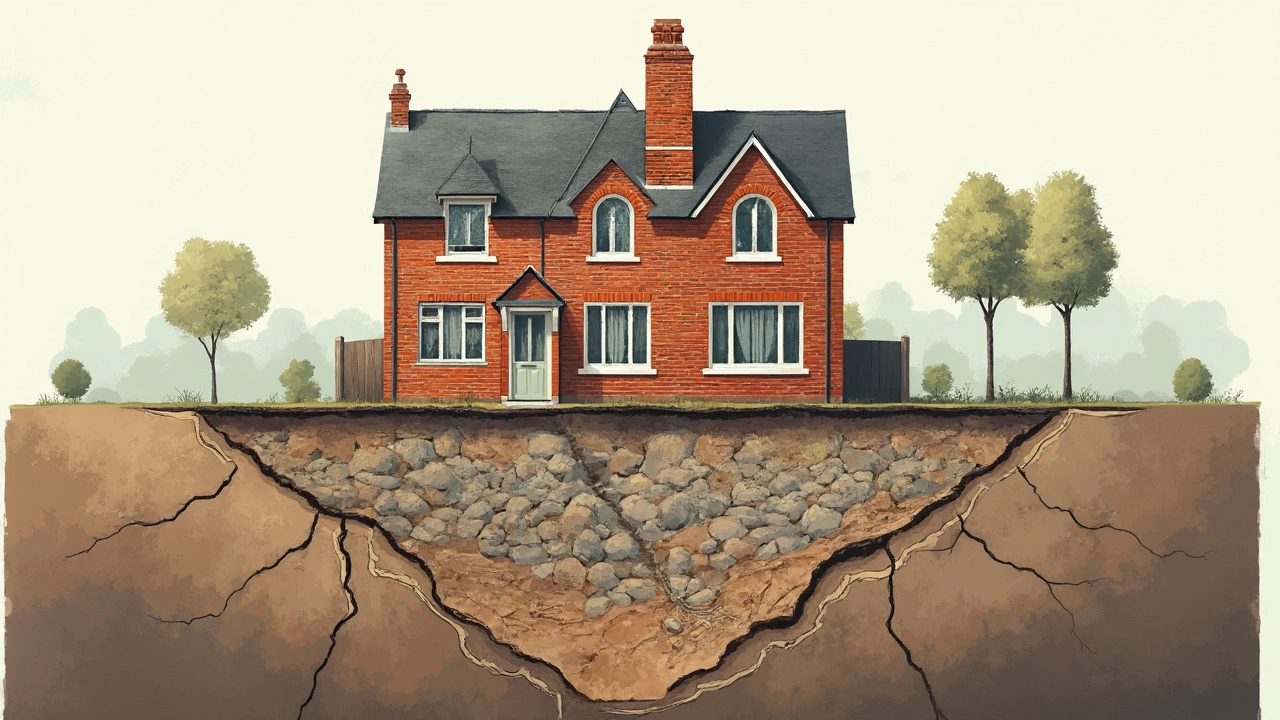
Preventing Foundation Problems
Keeping your home's foundation solid is easier than you might think, and it's all about maintenance and vigilance. Let's explore some basic steps to ward off those pesky foundation repair issues.
Water Management is crucial. Water might be great for plants, but your foundation? Not so much. Too much moisture can cause the ground to swell, and too little can make it shrink. Both scenarios aren't great for your house.
- Install Gutters and Downspouts: Make sure your gutters are clean and in good working order. Downspouts should direct water at least 6 feet away from your foundation.
- Grade Your Yard: Ensure the ground slopes away from your home to prevent water pooling at the base of your walls.
Next up, keep an eye on the vegetation close to your house. Sure, trees and shrubs are lovely, but their roots can be troublemakers. Plant trees at least 10 feet from your home, and consider root barriers for those already planted too close.
Regular inspection is your best friend. Catching minor issues before they balloon into big problems is the name of the game. Here's a quick list of things to include in your routine check:
- Look for cracks in your walls, and pay attention if they seem to be getting bigger.
- Watch out for doors and windows that don't fit their frames anymore; this could be a clue.
- Notice any bulging or leaning walls.
If you're uncertain about the signs, having an inspector check your foundation every few years can save you headaches—and dollars—down the road.
Finally, pay attention to climate conditions in your area. If you live somewhere susceptible to extreme weather, like heavy rains or cold snaps, take extra precautions. For instance, during dry spells, watering the ground around your foundation can help maintain consistent moisture levels.
Taking these preventive measures seriously can save you the nightmare of sudden structural issues and the need for extensive foundation repair. After all, a proactive approach now could mean less worry and more peace of mind later.
What to Do If You're Worried
If you're starting to feel uneasy about those foundation cracks or shifts in your home, it's time to take action rather than burying your head in the sand. Tackling the issue head-on can save you a ton of stress and even more money down the line.
First things first, don't ignore the warning signs. Not sure what's serious or not? Here's a straightforward action plan that might just save your home from a potential collapse:
- Inspect your home: Begin with a quick and thorough inspection of your house. Look for any suspicious cracking, shifting, or any signs that seem out of the ordinary.
- Hire a professional: This isn't a 'DIY' situation. Get a qualified structural engineer or a foundation repair specialist to check your home. They'll provide an accurate assessment of the severity of the problem.
- Get multiple opinions: Before jumping into any costly repairs, it's wise to get a second opinion. It ensures you're not shelling out cash for unnecessary work.
- Consider foundation repair: If experts suggest you need repairs, don’t delay. Foundation problems don’t fix themselves. Addressing foundation repair early can prevent more significant and expensive structural issues.
- Routine maintenance: Regular maintenance around your home's exterior, such as gutter cleaning and landscape grading, can prevent water from causing further foundation issues.
Think of your home like your health—it’s cheaper and easier to prevent a problem than to fix it after it becomes a crisis. So, keep an eye on those signs, and if anything seems off, call in the pros. A little vigilance goes a long way in avoiding major headaches.
Also, here’s a little stat for you: According to the National Association of Home Builders, homes with neglected foundation issues often see a 20% decrease in resale value. So, taking care now could mean more money in your pocket later on.
